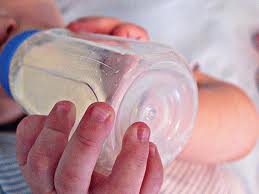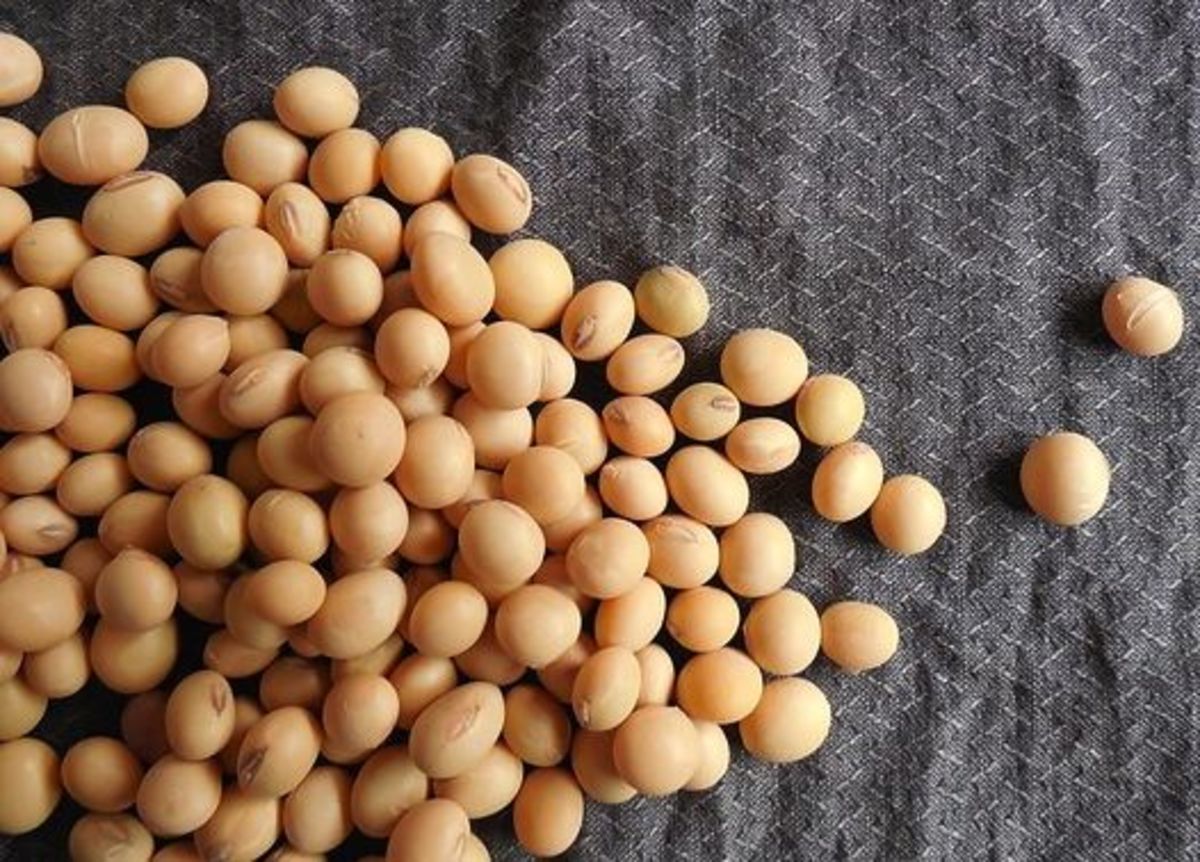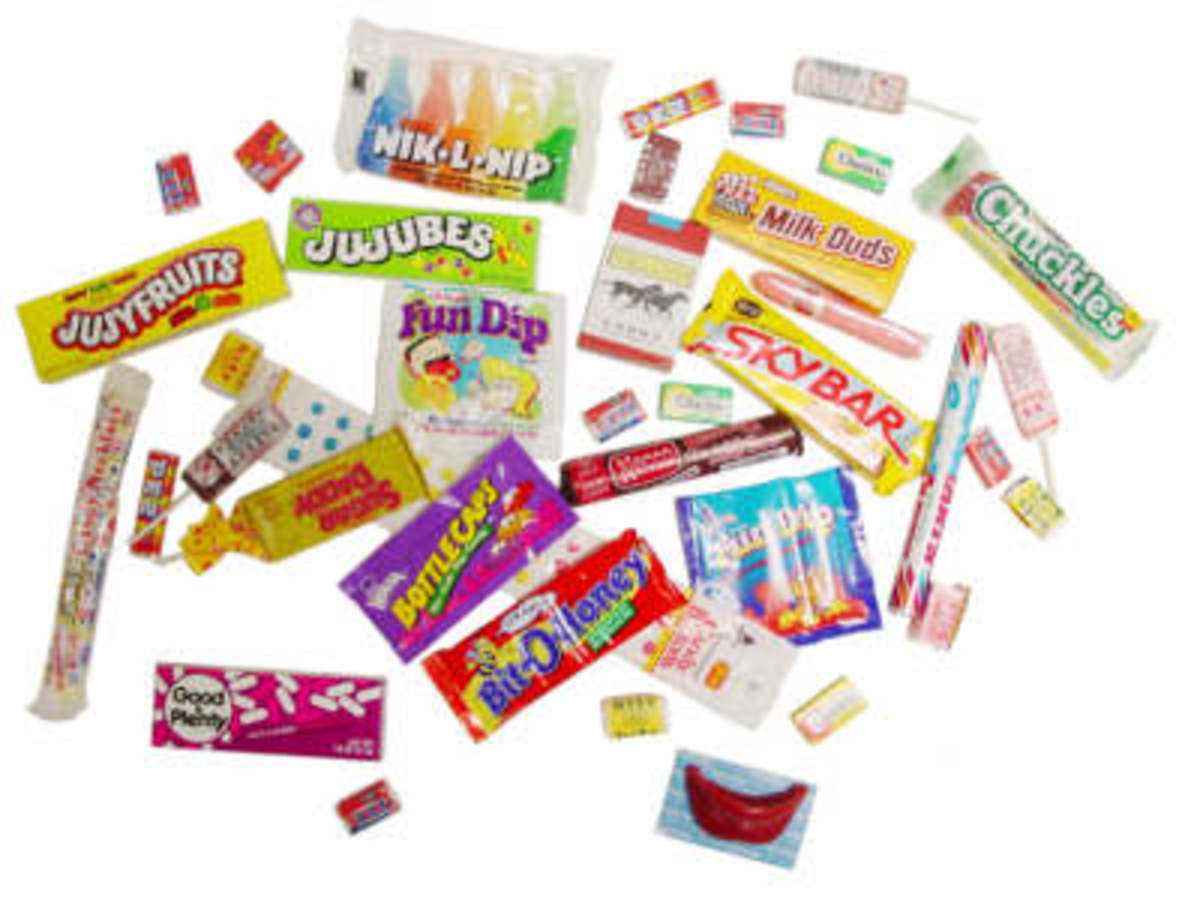THE DANGERS OF SOY: Searching for a Soy-free Baby Formula

The latter half of the 20th century could possibly be renamed the Age of Soy, as the American diet (and Western diet in general) became inundated with processed soy. In fact, one would be hard-pressed to find an item in the grocery store that does not have some form of soy or soy by-product listed among its ingredients. From 1992 to 2006 soy profits skyrocketed from $300 million to almost $4 billion per year.
However, over the past decade, there have been more and more reports regarding soy not only failing to support the health benefits its proponents claim, but in fact, actually being harmful to human health.
And, as these reports become more widespread, the demand by parents for a soy-free baby formula increases. Google "soy-free formula;" however, and one sees the sometimes desperation of these parents who are unable to find such a product. It's actually quite puzzling how large and small infant formula producers alike seem deaf to the rising concern regarding processed soy in an infant's diet. This is especially odd when one considers that there is money to be made (every businesses' only purpose for existence) from such an item and that there is a lengthy list of far healthier and safer alternative ingredients in which to make the formula.
There are are soy alternative solutions for infant formula (and yes, you can buy soy-less formula!); though, which will be discussed later in the article.
(Note: Breast feeding is the healthiest option for feeding infants. The nutrition and immunity boosting factors provided by breast milk are unparalleled. But, breast milk may not always be an option due to adoption, previous mother illness, or an inability to produce enough milk, etc.)
The Soy Misconception
The soy industry would lead us to believe that soy is a great way to lower cholesterol and the chance for heart disease. New findings are proving this to be false. What is coming to the forefront in new studies is the horrible effects that processed and non-fermented soy consumption has on human health:
-THYROID PROBLEMS
-PREMATURE PUBERTY AND OTHER DEVELOPMENTAL PROBLEMS IN BABIES, CHILDREN AND ADOLESCENTS
-BRAIN DAMAGE
-CANCER
-REPRODUCTIVE DISORDERS
-NUTRITIONAL DEFICIENCIES (soy may actually prevent our stomachs from absorbing the nutrition we need by creating "anti-nutrients")
-AND HEART DISEASE
How could soy possibly be bad for human consumption, when countless millions of Asians eat it as one of their staples every day? The facts say otherwise. Asians eat very little soy. The soy industry's own findings show that soy consumption in China, Korea, Japan, Taiwan and Indonesia range from 9.3 to 36 grams per day. Compare this with a cup of tofu (252 grams) or soy milk (240 grams). Asians consider soy to be more of a garnish, rather than a dietary staple. And, when they do eat soy, it is almost always fermented soy (the only safe soy), such as miso soup, and not the processed soy of Western diets.
To say current human soy consumption is at a historical high may be a gross understatement.

BOOKS ON DANGERS OF SOY
Soy & Infants
Both in quantity and body weight proportion, infants on a soy formula diet have a greater soy intake than adults. Still developing infants are especially at risk due to soy's hormone-mimicking effects. Increased estrogen is a known symptom of soy consumption.
A Lancet study showed that "daily exposure to estrogen-imitating chemicals for infants who consume soy formulas was 6-11 times higher than adults consuming soy foods." And the blood concentration of these hormones was 13,000 to 22,000 times higher than estrogen in the blood. An infant exclusively fed soy formula receives the estrogenic equivalent (based on body weight) of up to five birth control pills per day. Soy formula also contains aluminum at a 1,000% increase than what is found in conventional milk-based formulas and 80 times more manganese than in human breast milk.
As if soy in its natural state weren't harmful enough, most of the soy used for processing is also genetically modified (GMO). The cry and hue against GMO foods and the vast potential they have for harming human life and the ecosystem is beginning to sound across the globe (but this is for another article).
In Israel (where some of the first reporting was documented regarding soy's ill effects) it is illegal to feed soy to a child under two years of age.
SOLUTIONS? YES! SOY-FREE FORMULA
So, what are the options for parents where breast feeding is not an option and who do not want their children subjected to soy?
An Australian company called Hollle has a soy-free, organic formula on the market, which can be purchased for shipment to the US. Follow the links below to read more and purchase.
(I have not personally used this formulas yet; although, my wife and I have ordered it. I will update this article once we've had personal experience with it.)
International shipping will apply.
Home Page for Holle Soy-Free Formula
- Holle | Premium Organic Baby Food | Creating an Optimal Platform to Support your Childs Growth and D
Australian company that sells organic, SOY-FREE baby formula.
Amazon UK: Soy-Free Baby Formula
- Holle Organic Baby Milks - Infant Formula 1 - Multi-pack, 4 x 400g: Amazon.co.uk: Grocery
Holle Organic Baby Milks - Infant Formula 1 - Multi-pack, 4 x 400g: Amazon.co.uk: Grocery
HOMEMADE BABY FORMULA
Making your own formula may not be the best option for everyone, and this is understandable. While, not extremely time consuming, it does take a few minutes to prepare. Depending on parents' life-style, this may not be a viable option.
Below are options on homemade formulas. I do not recommend using homemade formula unless you have consulted your pediatrician first.
We started our daughter in the hospital on Similac Organic, which yes, does contain soy. Since then, we have slowly adjusted her to a homemade recipe and she seems to be doing very well on it.
Baby Formula Recipe - Weston A. Price Foundation
- Recipes for Homemade Baby Formula
Recipes for making homemade formula from raw milk or meat, when breastfeeding is not possible or must be supplemented. Includes nutrient comparison chart.
Baby Formula Recipe - Mercola.com
- Healthy Alternative to Conventional Infant Formula Part 1
The first of a nine-part series exploring safe and natural formula possibilities. (NOTE: I feed my child using this recipe.)
ANOTHER SOLUTION: MILK BANKS & MILK SHARING
There are many places where one can find milk banks, in which mothers who have an excess of milk donate their milk. There are usually strict donor screening and handling practices in place in these facilities. Breast milk from several donors is mixed together and homogenized (unfortunately homogenization may destroy many of the useful microbes in breast milk). Prices may vary.
Facebook has also created numerous pages in which mothers may share milk with one another. This is neither promotion nor condemnation of this practice; it is merely meant to be informative. Parents must decide for themselves what they are comfortable with in terms of feeding their infants. It should be noted, however, that the breast milk provided by a mother who has a two-week-old baby is different in its nutritional content than that of a mother with a six-month-old baby. Breast milk is always the best option, so a newborn eating the milk intended for an older child is still better than formula.
FACEBOOK: type "Human Milk for Human Babies" in the Facebook search to find various chapters of milk sharing in the US and internationally.
Human Milk Banking Association of North America
Milkbanking.net
- Donate Breast Milk - Milkbanking.net
Milkbanking.net has been designed as an aid for healthy lactating women with extra breast milk to find a milk bank that reaches out to low birth weight, premature and sometimes critically ill infants by donating their extra breast milk.
European Milk Bank Info
ADDITIONAL READING
If you would like more information regarding the detrimental effects of soy, I've provided links for further reading.
Mercola
- Mercola.com
Soy and infant formula articles
Natural News
Weston A. Price Foundation
- Weston A Price Foundation
Assuming soy is required, the following results were found.
Parenting Tools
- Child Discipline Products - Parenting Advice
We offer discipline tools for effective parenting and teaching. Use our child behavior contracts, unique behavior charts, and our discipline program.
If it's not about snakes, then what is it about?
- Not About Snakes
Blog written by a newborn. She's very precocious...






